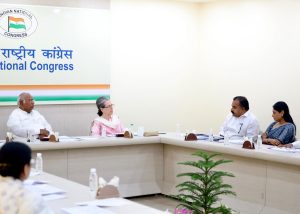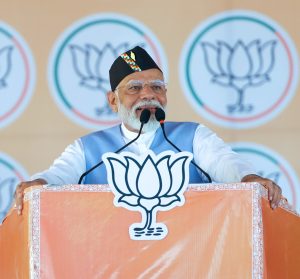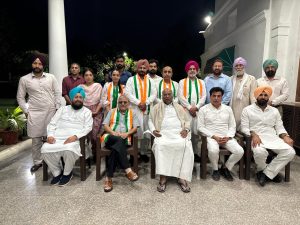RBI leaves key rate unchanged; easing warranted, fumes government
RBI leaves key rate unchanged; easing warranted, fumes government
MUMBAI (INDIA):Gloves were off between RBI and the government of India today after the central bank left key interest rate unchanged, leaving the finance ministry fuming as it felt that inflation was consistently low warranting a rate cut.nnHowever, in some cheer for home buyers, interest on loans of between Rs 30 lakh and Rs 75 lakh are expected to be cheaper as RBI reduced risk weightage for this category.nnReserve Bank Governor Urjit Patel-led Monetary Policy Committee, in a slightly less hawkish policy statement, said it was not cutting interest rates as it wanted to be more sure that inflation will stay subdued.nnWhile leaving for the fourth straight time the repo rate unchanged at 6.25 per cent — six-and-half-year low — and reverse repo rate at 6.0 per cent, RBI made it easier for banks to lend more by cutting the Statutory Liquidity Ratio by 50 basis points to 20 per cent of total deposits from June 24.nnSLR is the percentage of deposits banks must park in government securities.nnBut the finance ministry was not happy with the decision of the six-month-old MPC, with Chief Economic Adviser Arvind Subramanian openly expressing frustration at interest rate not being cut to help an economy that witnessed slowest growth in two years and credit growth being at its lowest in 25 years.nnHe said seldom have economic conditions warranted a substantial monetary easing as they are now. “Not just headline inflation has been running well below the target so far, but even core inflation has also declined sharply. In this view, inflation forecast errors have been large and systematically one-sided in overstating inflation.”nnHe said slowing growth and low inflation amid appreciating real exchange rate makes monetary policy conditions even tighter.nnThe Reserve Bank also warned of fiscal situation getting out of hand if states unabatedly continue to waive farm loans saying it also risk spurring inflation.nnInterestingly, this was the first MPC meeting that had a dissent note by former IIM director Ravindra H Dholakia.nnAlso, ahead of the MPC meeting – fifth since its constitution – the finance ministry sought to meet all the six members of the panel, a request Patel said was “declined” by all of them.nn”The meeting did not take place,” he told reporters here.nnAhead of the two-day meeting of MPC, Finance Minister Arun Jaitley had on Monday sought a cut in lending rates to boost private investments.nnRBI however slashed its inflation projections in a departure from the April policy which cited growing price pressures.nnCommenting on the policy, bankers said the cut in SLR is not going to have much impact on the lending capacity of banks but the reduction in risk weightage may result in lowering of housing loan interest rates.nnThe decision to reduce the risk weights for home loans over Rs 30 lakh category will release capital for the banking industry and is a positive move, SBI chief Arundhati Bhattacharya said.nnConsumer price inflation rose by just 2.99 per cent in April, the weakest on record. But GDP growth of 6.1 per cent in the January-March quarter was slowest in two years.nnRBI projected headline inflation at 2-3.5 per cent in the first half the current fiscal, down from a forecast of 4.5 per cent in April. In the second half, inflation is seen edging up to 3.5-4.5 per cent, lower than 5 per cent forecast earlier.nnThe central bank also lowered growth forecast to 7.3 per cent from 7.4 per cent earlier.nn”The decision of the MPC is consistent with a neutral stance of monetary policy in consonance with the objective of achieving the medium-term target for consumer price index (CPI) inflation of 4 per cent within a band of +/- 2 per cent, while supporting growth,” RBI said in its second bi-monthly monetary policy review for 2017-18.nnFive members were in favour of the monetary policy decision of maintaining the status quo, while Ravindra H Dholakia was not, it said.nn”The current state of the economy underscores the need to revive private investment, restore banking sector health and remove infrastructural bottlenecks. Monetary policy can play a more effective role only when these factors are in place,” it said.nnRBI raised concerns over the possibility of fiscal slippages due to the farm loan waivers.nn”The risk of fiscal slippages, which, by and large, can entail inflationary spillovers, has risen with the announcements of large farm loan waivers,” it said.nnAt the current juncture, global political and financial risks materialising into imported inflation and the disbursement of allowances under the 7th central pay commission s award are upside risks, it said.nnAnalysts and watchers were expecting the MPC to go in for a status quo on the rates, but soften its commentary from the hawkish one, given clarity on various aspects and the cool- down in inflation.nnThere is also greater clarity on the rainfall, with the IMD predicting for a normal monsoons this season which can help the food inflation situation.nnRBI said the implementation of the Goods and Services Tax (GST) is not expected to have a material impact on overall inflation. Government intends to roll out GST from July 1.nnRBI shifted its policy stance to “neutral” in early 2017, allowing it the flexibility to move in either direction, from “accommodative” stance for two years.nnIt followed that up with statements at the last policy review about worries of inflation rising to 5 per cent in the second half of fiscal 2017-18 and also the need to get the price-rise number to its target of 4 per cent in a credible way.nnThe BSE benchmark Sensex slipped into negative territory for a brief period after the RBI kept key policy rates unchanged today, but re-entered the green zone towards the fag-end of the session.nnIt closed with a gain of 80.72 points at 31,271.28.nnSource: Press Trust of India




